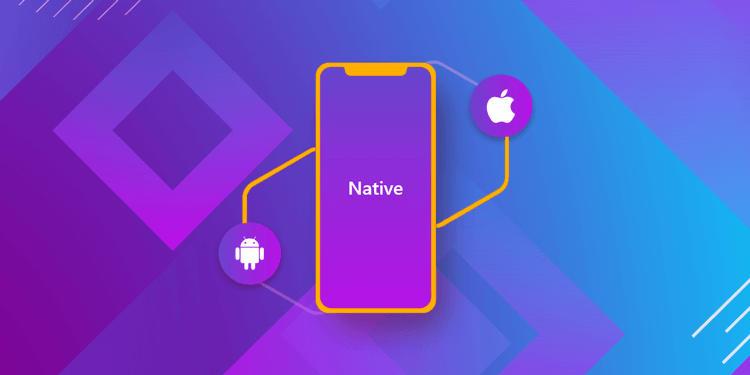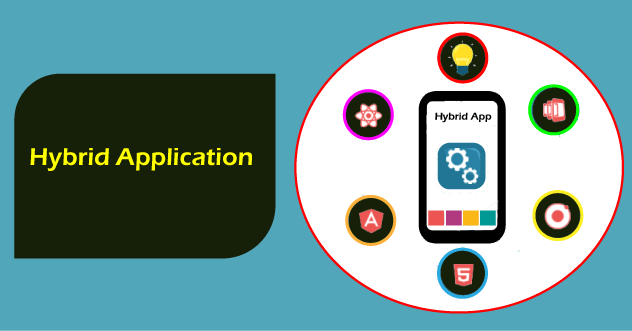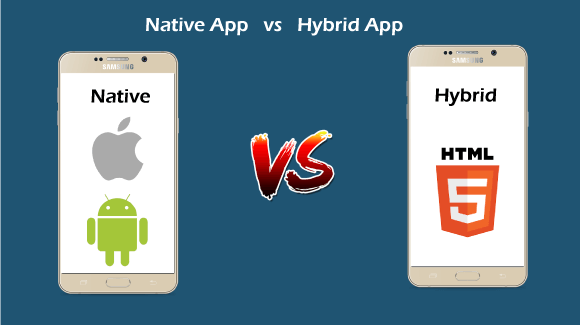Difference between Native app and Hybrid app
In this article, we are going to discuss Native applications, Hybrid applications, and the comparison between them.
Native Applications
Native applications are the applications of smartphones that are specifically designed for mobile operating system. For instance, Swift for iOS, Java and Kotlin for Android.

Advantages of Native apps
The benefits of native applications are listed as follows -
- We can download and install these applications on a device from the Google play store or App store .These applications are accessed by the icons on the home screen.
- Native applications are fastest and provide a reliable experience to the user.
- Native applications can take advantage of mobile features such as GPS, camera, compass, contacts list, and many more.
- Native applications can work offline by using the notification system of the device. It can be done by using push notifications and by alerting the users every time when there is new piece of content is published, or if user's attention is required.
Disadvantages of Native apps
The limitations of using the native applications are listed as follows -
- Native applications developed on one platform will not run on another platform. These applications are particularly developed for one platform.
- A large amount of budget is required to develop a native application that will be compatible with multiple platforms (such as iOS and Android both) and to keep the native application updated. The updation of the native applications can be done on the App Store or Google play store.
- The maintenance of native applications is higher.
Hybrid Applications
Hybrid applications are the combination of both native applications and web applications. Hybrid apps run offline on the devices. Hybrid apps are written by using the web technologies like HTML5 and CSS.

Hybrid apps are designed in a way to render the existing website's content in an application format. Hybrid applications can be accessed from a web browser and can also be downloaded from an app store. Like web applications, hybrid apps are written in JavaScript and HTML5. Hybrid apps require less maintenance. The speed of a hybrid app is entirely dependent on the speed of the browser, so hybrid apps never as fast as native apps.
Advantages of hybrid apps
The benefits of hybrid apps are listed as follows -
- Hybrid apps can work on various platforms. It means that they can operate on both iOS and Android, as they have a single code base. Since developers have to create a single codebase.
- The maintenance and development of hybrid applications is simple.
- The development of Hybrid application is cheaper than the native application.
Disadvantages of the hybrid applications
The limitations of hybrid apps are as follows -
- Requirement of an uninterrupted internet connection to work.
- They are slower than the native applications.
Now, let's see the comparison chart between Native application and hybrid application. We are comparing both terms on the basis of some characteristics.
Native app v/s Hybrid app

We have discussed the pros and cons of Native and hybrid apps. It is easy to notice the difference between both applications by reading their pros and cons. The tabular representation of the comparison between Native app and hybrid app is given as follows -
| On the basis of |
Native App |
Hybrid App |
| Installation |
Native applications require installation. |
These apps don't require installation. |
| Maintenance |
They require high maintenance. |
They require less maintenance. |
| Time and cost |
A large amount of budget is required to develop a native application that will be compatible with multiple platforms (such as iOS and Android). |
Hybrid apps are cheaper, or we can say cost-effective, as they require less development time. |
| Codebase |
They have multiple codebases. |
They have a single codebase. |
| User experience |
They provide the best user experience. |
Hybrid apps don't have a good user experience. |
| Languages used |
The languages used in native apps are Java, Swift, Kotlin. |
The languages used in Hybrid apps are JavaScript, HTML, CSS. |
| Platform Dependent |
These applications are particularly developed for one platform. |
Hybrid apps can work on various platforms. It means that they can operate on both iOS and Android. |
| Updation |
The updation in the mobile native apps can be done from the play store or app store. |
On the other hand, mobile web apps updations are centralized. |
That's all about the article. So, the article is not only limited to the comparison, as we have also discussed native apps and hybrid apps separately.
|



 For Videos Join Our Youtube Channel: Join Now
For Videos Join Our Youtube Channel: Join Now










